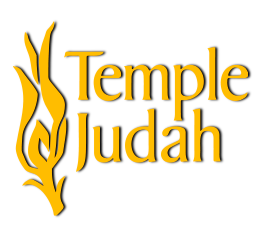Shalom All,
This month we find ourselves back at the beginning of our Torah in our weekly readings. One of the more famous, early stories, in Genesis is the tale of the Flood. In it, Noah is commanded to build an Ark, saving his family and the animals from a flood that wipes out humanity because of lawlessness and wickedness. It’s a fantastic tale that may or may not detail an actual, devastating event in the ancient world. We know that other cultures also have flood narratives. But, whether it’s true is immaterial to the lesson being taught. The author here, is less interested in history, and more interested in our relationship with God, God’s relationship with us, and why an omnipotent God would cause such disaster.
The author concludes that there is a cause and effect when we sin. God exacts punishment, usually harsh punishment. For the wickedness of the people, the earth would be destroyed. Indeed, this theology of reward and punishment is pervasive in our Torah.
But how do we find meaning in the Noah story, especially if we reject the theology of reward and punishment. If we do not read this narrative as history, nor as theology, then perhaps there is meaning in the parable.
Every detail of the ark that Noah is instructed to build is described, including the window, “make an opening (tzhar) for light in the ark (Gen. 6:16).” Bartenura, a 16th -century commentator, writes that the word for window, tzhar, shares the root for the wor tzhariyim, meaning noon. He suggests that Noah was commanded to build an opening that would let the noon light shine within the ark. This was a window of hope waiting for the new day to dawn; a window to the world, to the heavens; an opening so that Noah could send forth a messenger, a dove, who could search the landscape and let us know when it is safe to emerge.
And indeed, the birds circle the world for dry land. After a while, towards the evening, as the sun begins to set the dove returns, carrying an olive leaf in its beak, proof that we can begin again. And here Torah offers us a great spiritual metaphor. It is story of the window in the ark, which teaches us the abiding lesson of resilience, for sometimes life imposes upon us great distress. And when it does, Torah teaches us to be a vessel of safety to weather the storm. But, that when we do, we should not forget to build a window, an opening to the world, a way out of our despair, for the ark is not meant to harbor us forever.
All storms eventually end. The goal is to emerge from them together, with hope that the future can be better for all.
Shana Tova everyone.
A good and sweet year for us all.
Rabbi Todd

